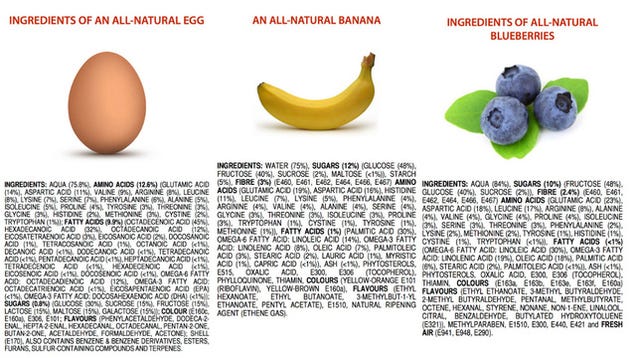Home › Cosmetic Science Talk › Formulating › General › Why some products claim Gluten-free?
-
Why some products claim Gluten-free?
Posted by vocenal on October 16, 2014 at 4:57 amNow, many cosmetic products have variety of “free” claims. When I saw the claim named “gluten-free”, I was confused.
Is that mean I can’t use materials coming from wheat, oat, barley etc, if I want product have a gluten-free claim?I know in food industry gluten may cause some allergies for some people who have difficulty of diguistion. I also know some people say it is not a kind of good protein. However, if I use it in cosmetic products what would be happened? Allergy or something else, or just a commercial claim?belassi replied 10 years, 10 months ago 10 Members · 16 Replies -
16 Replies
-
This should give you some idea about these claims
And there many more in favor and against such claims. It is just one of them.
-
Thank you for this discussion! I’m writing an article for my website and this link was extremely helpful.
I just would like to understand why marketers love to put all the blame in one molecule! -
Gluten has become the new paraben.
There are some ignorant consumers (and even some ignorant doctors) who mistakenly believe the old wives tale that “60% of what you apply to your skin goes into your body”. There are also many consumers who believe that having a sensitivity to gluten in their food automatically means that they will react badly to gluten on their skin.
Since 99.5% of all cosmetic ingredients are naturally gluten-free, it costs very little to get letters from cosmetic ingredient suppliers certifying that your ingredients are gluten-free, and therefore substantiate a label claim of “gluten-free”The one thing that you have to be careful of is any wheat-derived raw materials. When consumers say “gluten-free”, they really mean “wheat-free”, so anything with wheat in the name has to go. -
@Gustavo - It makes for an easy marketing story. Marketers are trying to find ways to differentiate themselves. The reality about cosmetics is that no one can really make consumer-noticeably superior products. That is to say, no one is able to make cosmetic products that are clearly better than everyone else’s.
So the marketers have a problem. The products won’t make them stand out so they need to find different ways. Some marketers stand out with their packaging, others do it with their advertising. Small companies do it with fear. When you say your products are ‘gluten free’ you are implying that there is something wrong with gluten. And for people who have sensitivities or worry about “chemicals” this is an appealing story.The reason there are gluten free cosmetics is because there are people who mistakenly believe gluten is bad and they are willing to pay money to avoid it. -
All said and done I was thinking that the juice I drink has a long list of chemicals, the sliced bread that I eat in my breakfast has a long list as well, the salt I consume, the wafers, the biscuits, the dairy products, and what not.
Oops I completely forgot the gluten in my topical application product!!!!! )
) -
Anonymous
GuestOctober 30, 2014 at 6:11 amI love this picture, it really sums it up…well done

-
Most of these claims start off in America with a little bit of encouragement from some celebrities and not forgetting Dr. OZ! The tide of ignorance and miseducation then slowly blows across the Atlantic and spreads like wildfire! Now suddenly, Coconut water and blueberries are a MUST!
-
While I totally agree with Perry and others that this claim and such claims in general might be just adding to the pile of fear mongering against chemicals, there is a little bit of truth to avoiding adding food ingredients to cosmetics.
Not long ago there was this news article about a woman going into anaphylactic shock because of using a cream containing goat milk. Turned out she was severely allergic to goat milk.I think that if you’re allergic to peanuts you shouldn’t use a cosmetic containing peanut oil.The thing with allergies is that a (potentially sensitizing) ingredient you never had problem with, but used during a long period of time, could lead to a full on allergy. -
@Rahma and let’s not forget those ‘brilliant’ British academic scientists who start off with an agenda and manufacture the evidence to ‘prove’ it
(e.g. Darbre, who published the paper fuelling the “parabens cause breast cancer” scare; the paper which is full of fundamental scientific errors and statistical cherry-picking that would have got any industrial scientist sacked)
-
@Bill, I agree!
Consumers are easily manipulated, I was researching ethical marketing the other day and I came across a “vitamin water” company that claims it’s water is “gluten free” really?!
-
There are people in my city promoting “alkaline water”. It cures everything. pH = 8.
I asked how they got it to pH 8 and was given a big story about ionisation.They gave me a bottle as a free sample. I took it home.The next day I had a client visit me. He is a food producer - in charge of cold meats and sports drinks for a large group. He spotted the bottle and said, “How come that is 700mL? We wanted to use that bottle type but it is only 600mL.”I immediately weighed the contents. 600mL! So, wrongly labelled. Then I tested the pH. As expected, it was 6.7
Log in to reply.


